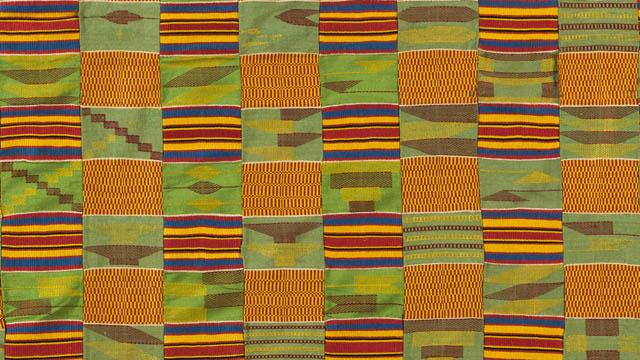Ghana’s Political Landscape: Unveiling the powers and Players Shaping the Nation’s Destiny
Table of Contents
- 1 Ghana’s Political Landscape: Unveiling the powers and Players Shaping the Nation’s Destiny
- 1.1 Table of Contents
- 1.2 Introduction
- 1.3 Historical Evolution of Ghana’s Political Landscape
- 1.4 The Constitution and Governance Structure
- 1.5 Key Political Parties and Ideologies
- 1.6 New Patriotic Party (NPP)
- 1.7 National Democratic Congress (NDC)
- 1.8 The Role of the President and Parliament
- 1.9 Political Institutions and Regulatory Bodies
- 1.10 Electoral Commission
- 1.11 Judiciary
- 1.12 Emerging Trends and Challenges
- 1.13 The Role of Civil Society and Media
- 1.14 Ghana’s International Relations and Diplomacy
- 1.15 Case Studies and First-Hand Experiences
- 1.16 Conclusion
Table of Contents
- Introduction
- Historical Evolution of Ghana’s Political Landscape
- The Constitution and Governance Structure
- Key Political Parties and Ideologies
– New Patriotic Party (NPP)
– national Democratic Congress (NDC)
- The role of the President and Parliament
- Political Institutions and Regulatory Bodies
– electoral Commission
– Judiciary
- Emerging Trends and Challenges
- The Role of Civil Society and Media
- Ghana’s International Relations and Diplomacy
- case studies and First-Hand Experiences
- Conclusion
Introduction
Ghana’s political landscape is a vibrant and complex tapestry, woven together by historical influences, constitutional principles, and the interplay of diverse political actors. This article unveils the powers and players that shape the nation’s destiny, examining the evolution, structure, key parties, institutions, and current trends that define Ghana’s political ecosystem.
Historical Evolution of Ghana’s Political Landscape
Ghana’s political journey has been marked by independence from British colonial rule in 1957, followed by periods of democratic governance, military interventions, and a return to constitutional rule. The first republic,founded by Kwame Nkrumah,promoted pan-Africanism and socialism.Subsequent military regimes curtailed democratic freedoms, while the Fourth Republic, established in 1992, has witnessed a more stable and democratic era.
The Constitution and Governance Structure
Ghana’s Constitution sets the framework for governance. It establishes a three-tiered system:
- Executive Branch: Led by the President, who is both head of state and government.
- Legislative Branch: The Parliament, a unicameral body with 275 members elected by proportional depiction.
- Judicial Branch: An independent judiciary, headed by the Supreme Court.
Key Political Parties and Ideologies
New Patriotic Party (NPP)
- Founded in 1992 as a center-right party.
- Adopts a liberal economic approach, emphasizing private sector growth and free markets.
- led by Nana akufo-Addo, who has served as president since 2017.
National Democratic Congress (NDC)
- Founded in 1992 as a center-left party.
- Focuses on social democratic principles, prioritizing social welfare programs and economic equality.
- Led by former President John Dramani Mahama.
The Role of the President and Parliament
The President of Ghana possesses important executive power, including appointing ministers, proposing laws, and commanding the armed forces. Parliament holds legislative authority and can impeach the President. A balance of power is maintained through checks and balances between these two branches.
Political Institutions and Regulatory Bodies
Electoral Commission
- Responsible for conducting fair and credible elections.
- Appoints returning officers, supervises voter registration, and declares election results.
Judiciary
- The Supreme Court is the highest court and has the power of judicial review.
- Maintains the integrity of the constitution and ensures the independence of the judiciary.
Emerging Trends and Challenges
Ghana’s political landscape faces ongoing evolution and challenges:
- Increasing political polarization and partisan divides.
- Tackling corruption and ensuring accountability.
- Promoting political dialog and consensus-building.
- Maintaining a balance between political stability and democratic freedoms.
The Role of Civil Society and Media
Civil society organizations and the media play a vital role in holding power to account:
- Monitoring government actions and advocating for transparency.
- Providing platforms for diverse voices and promoting public discourse.
- Educating citizens about political issues and empowering grassroots participation.
Ghana’s International Relations and Diplomacy
Ghana maintains strong international partnerships and plays an active role in global affairs:
- Member of the United Nations, African Union, and the Commonwealth of Nations.
- Promotes regional peace and stability.
- Attracts foreign investment and fosters economic progress through bilateral and multilateral agreements.
Case Studies and First-Hand Experiences
Highlighting specific case studies or first-hand accounts can provide valuable insights into Ghana’s political dynamics.Examples may include:
- Analysis of election campaigns and party strategies.
- Interviews with political leaders and activists.
- Case studies on the impact of civil society initiatives or media investigations.
Conclusion
Ghana’s political landscape is a dynamic and intricate system where the interplay of historical, constitutional, and current factors shape the nation’s destiny. By analyzing the powers and players involved, we gain a deeper understanding of the challenges and opportunities facing Ghana’s political ecosystem. As the nation continues to navigate the complexities of modern governance, the balance of power, the role of institutions, and the engagement of civil society and media remain critical in determining the path Ghana will forge towards a prosperous and democratic future.

